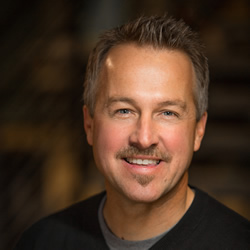Heroes share what they know; hero makers share their lives.
Over the last few weeks, we’ve been talking about hero making and how we make the shift from being the hero (standing on the platform) to making heroes of others (building a platform for others). We’ve talked about the first two of five-hero-making practices: multiplication thinking and permission giving. In this post, we’re focusing on the third hero-making practice, which is “disciple multiplying”—a shift in sharing.
Here’s the difference between heroes and hero makers. Heroes share what they know; hero makers share their lives. Hero makers invest in the development of leaders who invest in the development of leaders to the fourth generation.
The difference is subtle but big.
Diatribo-ing With the Twelve
We see this in the life of Jesus. When you think about Jesus’ ministry, do you think about Him preaching sermons to crowds, feeding and healing people wherever He went? Or do you think of Him as spending time with the 12 men He selected and taught? Research on the Gospels shows that three-fourths of Jesus’ emphasis was on training the disciples. From the time He told them to go out and multiply in Matthew 4:19 to His death, 73 percent of His time was with the Twelve. The Gospels record 46 events spent with the disciples compared to 17 events with the masses—almost three to one.
We can learn from this, and I hope we do. There’s an easily overlooked verse in John 3:22 that says, “After this, Jesus and his disciples went out into the Judean countryside, where he spent some time with them.” The Greek word for “spend time with” is this composite word, diatribo. Dia means “against,” and tribo means, “to rub.” So diatribo literally means “to spend time together rubbing off on each other.”
Jesus spent time with the disciples rubbing off on them.
The point of Jesus’ ministry—why he spent three-fourths of His time with the few—was that they would do greater things. That was the goal. He knew the mission would be accomplished through them and the people they would disciple who would disciple others and so on. And the way to do this was just spending time together, rubbing off on them.
A Modern-Day Disciple Multiplier
When you’re committed to being a disciple multiplier, the impact reaches beyond your church and your city. My friend and former apprentice, Troy McMahon, is a great example. Troy worked at General Mills and did a great job as an apprentice in my small group. He soon became the leader, and I went on to start another group. As he continued to lead, we asked him to be a coach for our small group leaders and eventually he wound up joining our staff and then becoming our first campus pastor.
Eleven years ago, Troy planted Restoration Church in Kansas City with NewThing. Restore now has 1,000 people at three locations and has helped plant 41 churches. On top of that, he’s leading a Network network of churches in Kansas City!
“Our dream is to invest in others and see 100 churches planted in the city in the next 10 years,” Troy says in this podcast focusing on disciple multiplying. “If we can embed the reproductive DNA in those churches, then by the end of that decade we’ll see a number of those churches reproduce. And so it’s not just starting the first generation; we’re starting the second or third generation as well.”
This is the kind of multiplication that advances Exponential’s “4-10 mission.” When we see disciple multipliers birthing new communities of faith, we will begin to move the needle from 4 percent of churches in America to 10 percent and beyond!
Five Steps of Diatribo or Apprenticeship
How do you start to do this and become a disciple multiplier? Below, I’ve detailed five steps of apprenticeship that we use. After each step, the leader meets with their apprentice and asks “What worked? What didn’t work? and How can we improve?”
- I do. You watch. We talk.
- I do. You help. We talk.
- You do. I help. We talk.
- You do. I watch. We talk.
- You do. Someone else watches.
(Watch this video for detailed explanations of the five steps.)
This third hero-making practice of disciple multiplying is the most crucial. We’ve got to get this one right because when we get this one right, all of the other practices fall into place. It’s key to becoming a hero maker. If you want to learn how you can become a better disciple multiplier, then check out our 2018 Hero Maker Conference. It will feature 175+ speakers, 200 workshops, 9+ tracks, and 5,000 church planting leaders in sunny Orlando, Florida. Don’t miss the largest gathering of church planting leaders in the world.
Dave Ferguson serves as president of Exponential while leading Community Christian Church and vision for the NewThing Network. His new book (with Warren Bird), Hero Maker: 5 Essential Practices for Leaders to Multiply Leaders, releases February 2018. Visit exponential.org/2018 to learn more about hero making at the the upcoming Exponential East conference in Orlando (Feb. 26-March 1).







